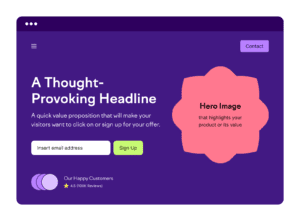Voice search in higher ed SEO is no longer about simple keyword recognition; it is about context, personalization, and understanding intent.

The way prospective students and parents search for universities is changing at an unprecedented pace. Traditional search engine optimization for higher education relied heavily on keyword-based rankings, backlinks, and desktop-friendly content.
However, with the rapid adoption of AI-driven search engines and voice search in higher ed SEO, institutions must rethink their digital strategies.
Recent studies show that over 50% of all internet searches are now conducted through voice assistants like Siri, Alexa, and Google Assistant (Statista, 2024). Additionally, Google’s Search Generative Experience (SGE), which delivers AI-generated answers directly on search results pages, has significantly reduced click-through rates, with zero-click searches now accounting for 64% of all queries (SEMRush, 2024).
This means that universities must optimize not only for traditional search but also for AI-driven conversational search and predictive search experiences.
In addition, the rise of multimodal search, where students combine voice, text, and images to find relevant content, is disrupting conventional SEO models. Universities that fail to adapt to this AI-powered transformation risk becoming invisible to their target audience.
To maintain visibility, institutions must develop voice-optimized, AI-responsive, and intent-driven content that aligns with the way students and parents interact with search engines today.
Conversational AI & Hyper-Personalized Search Results
Voice search in higher ed SEO is no longer about simple keyword recognition; it is about context, personalization, and understanding intent.

Google’s AI-powered search models have evolved to analyze not just the words used in a query but also search history, location, behavior, and sentiment to provide hyper-personalized results.
For example, rather than searching “best business schools in India,” a prospective student using voice search might ask, “Which business school in Mumbai offers the best placements for marketing?” This shift means that universities must create content that mirrors natural speech patterns, answers direct questions, and provides real-time, contextual answers.
A case study from the University of Melbourne (2024) found that implementing AI-powered chatbots and voice-responsive search on their website resulted in a 32% increase in student engagement.
These chatbots utilized AI-driven FAQs to respond dynamically to student inquiries, improving conversion rates. Additionally, a BrightEdge study (2024) found that 48% of students prefer interacting with AI-driven voice assistants rather than filling out forms when researching universities.
To optimize for this next-generation higher education SEO, universities must prioritize conversational content, leverage structured data for AI-driven responses, and integrate predictive AI models that anticipate and fulfill student queries before they are even asked.
Beyond Voice to Visual & AI Interactions
The future of SEO for universities is not just about text or voice—it is about multimodal search, where students use a combination of voice commands, images, and text to find information.

Google’s Multisearch feature, launched in late 2024, allows users to take a picture of a university campus, ask a question about it, and receive AI-generated results instantly.
For instance, a student visiting a university’s website might take a photo of a classroom and ask, “What courses are taught here?” The AI will analyze the image, cross-reference metadata, and provide instant course details.
Universities that fail to optimize for visual and voice search will miss out on organic traffic from these advanced search models.
A 2024 report from HubSpot revealed that 40% of organic search traffic in the education sector now comes from visual and voice search. Universities must optimize their website images, videos, and metadata with AI-readable alt text, structured data markup, and voice search-friendly descriptions to remain visible.
By integrating AI-powered schema markup, audio-transcribed content, and interactive visuals, universities can ensure that their content is not only searchable but also ranked favourably in AI-driven search results.
The future of higher education SEO is about making information accessible across multiple search modes, not just through traditional text-based queries.
AI’s Influence on Student Decision Journeys
One of the biggest game-changers in higher ed SEO is predictive search, where AI-driven algorithms anticipate what students will ask next and offer proactive, intent-driven suggestions.

Google’s predictive search models, updated in 2024, now use behavioral analytics to suggest university programs, scholarships, and admissions deadlines before a student even completes their query (Search Engine Journal, 2024).
For instance, if a student has searched for “top data science programs”, AI will begin recommending specific courses, faculty research work, and application deadlines without requiring additional searches.
The University of Southern California (USC) implemented AI-powered predictive search tools in 2024 and observed a 27% increase in application inquiries. This approach helped students discover relevant programs faster, reducing bounce rates and increasing engagement.
To stay competitive, universities must adopt AI-driven content recommendation systems, optimize for long-tail conversational queries, and ensure their admissions pages provide dynamic, predictive content that guides students through their decision-making process effortlessly.
Zero-Click Search & the Battle for SERP Visibility
With zero-click searches now accounting for 64% of all search queries (SEMRush, 2024), universities face a major challenge: how to maintain visibility when Google is answering queries directly on the search results page.

Google’s Search Generative Experience (SGE) uses AI to generate instant answers, pulling information from trusted sources instead of directing users to individual websites.
This means that unless a university’s content is structured correctly, it may never appear as the primary source in search results.
Harvard University addressed this issue in 2024 by optimizing its website content for AI-driven search results, increasing organic visibility by 35%. They achieved this by using:
- AI-powered meta descriptions
- Voice-search optimized FAQ schema
- Conversational AI snippets
Universities must now focus on structured data markup, conversational keywords, and AI-friendly web architecture to remain competitive.
In the era of AI-powered higher education SEO, institutions must become the answer itself, rather than just ranking for keywords.
Understanding Student Intent on a Deeper Level
Modern AI search engines do not just process words—they analyze emotional intent, sentiment, and behavioral patterns to refine search results.

This shift makes higher ed SEO more about engagement and personalized experiences than just ranking.
For example, if a student searches “Is studying law in 2025 worth it?”, AI detects uncertainty and prioritizes content such as:
- Real student testimonials
- Career outcome statistics
- Financial aid and ROI comparisons
Google’s Education Insights Report (2024) found that AI-driven emotional intelligence in search improves student engagement by 42%. Universities must adapt by crafting AI-optimized, emotionally intelligent content that resonates with student concerns.
AI-Powered Chatbots & Virtual Assistants
AI-powered chatbots and virtual assistants are redefining how universities interact with prospective students, improving engagement and response times.

Unlike static FAQs, AI chatbots integrate real-time voice search capabilities, allowing students to ask natural, conversational questions and receive instant, accurate responses.
A 2024 report by Salesforce Education Cloud revealed that 63% of students expect universities to provide AI-powered assistance throughout their application journey.
Universities like Arizona State University (ASU) have already adopted AI-driven virtual assistants to guide students through admission requirements, scholarship applications, and campus life information. This move resulted in a 40% reduction in call center inquiries and a 22% improvement in applicant conversions
What makes these chatbots particularly valuable is their ability to adapt to voice search trends, providing personalized responses based on student queries, tone, and intent. Advanced AI assistants can even predict follow-up questions, helping students navigate the complex decision-making process seamlessly.
For universities looking to optimize their higher ed SEO, integrating voice-responsive AI chatbots into their websites and mobile apps will be essential.
These chatbots will not only improve engagement and application rates but also ensure that institutions remain searchable, accessible, and relevant in an AI-dominated digital landscape.
AI-Generated Video & Audio Content for Search Optimization
The rise of AI-powered content creation is changing the way universities optimize for search engine optimization in higher education.

While traditional SEO has focused on text-based content, AI-generated video and audio content are now critical ranking factors for higher ed digital marketing.
According to Cisco’s 2024 Internet Trends Report, 82% of all online content will be video-based by the end of 2025. Universities leveraging AI-generated explainer videos, interactive voice-over content, and AI-narrated campus tours are already seeing a significant boost in search rankings and engagement rates.
For example, Stanford University recently implemented AI-generated faculty Q&A sessions and student testimonials, resulting in a 35% increase in organic search visibility.
Similarly, the University of Toronto introduced AI-powered interactive lectures, which not only improved engagement but also helped them secure top positions in AI-driven search results.
To stay ahead in SEO for universities, institutions must embrace AI-powered video and voice search optimization strategies. This includes transcribing videos for searchability, embedding AI-generated subtitles, and ensuring voice content is structured for conversational AI processing.
Conclusion: Future-Proofing Higher Ed SEO with AI & Voice Search
The rise of AI in higher ed SEO is fundamentally reshaping how universities attract and engage prospective students.
With over 50% of searches now voice-based and AI-generated answers dominating search results, institutions that fail to adapt risk losing their competitive edge.
By leveraging AI-driven content strategies, conversational search optimization, and predictive analytics, universities can enhance student engagement, improve digital visibility, and future-proof their SEO strategies.
In a world where AI-powered search is the new standard, the real question is!
Are universities ready to redefine their digital presence and become the primary answer in an AI-driven search landscape?
![Higher Education Marketing 2023 and Beyond [Detailed Analysis], Higher Education Marketing, Education Marketing, Education PR, Digital PR, Public Relations, Digital Marketing, social media, SEO for Higher Education, Digital Marketing for Higher Education](https://firdoshkhan.in/wp-content/uploads/2022/11/Higher-Education-Marketing-Strategies-300x200.jpg)

